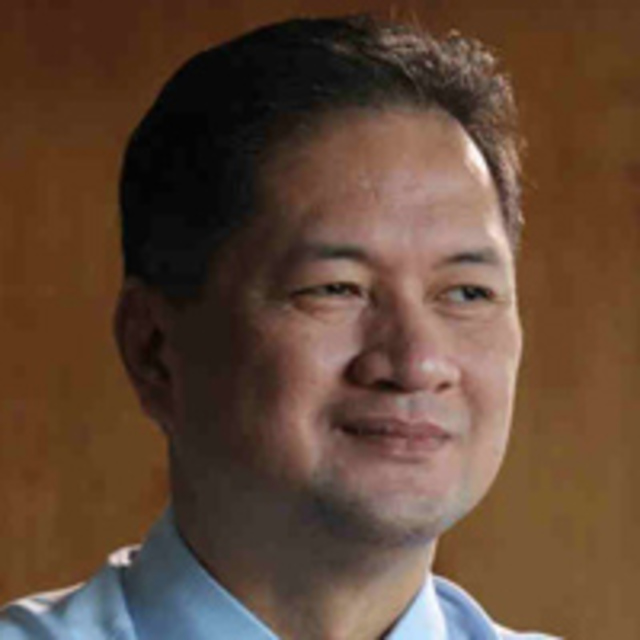


In the novel The Plague by Albert Camus, Raymond Rambert is a journalist from Paris visiting Oran, a plague-stricken town. Longing for his wife, Rambert stubbornly appeals to the authorities, and then eventually resorts to illegal smugglers, just to break quarantine. At the night of his negotiated escape, however, he finally releases his desire to leave, and affirms that the plague is not a hell to escape from, but a world to live through. He decides to stay in town to help in dealing with the plague.
Thankfully, most Filipino journalists we know and work with are like Rambert.
Truth in crisis
According to the World Health Organization, the COVID-19 crisis“[is] accompanied by a massive ‘infodemic’ – an over-abundance of information – that makes it hard for people to find trustworthy sources and reliable guidance when they need it.”
In the Philippines, what's worse is that we seem to have both an overabundance of information we don't want, and a shortage of the information we actually need.
Without reliable information in this time of crisis, the people are left blind, anxious, and helpless.
The Filipino – a daily wage earner – fully aware that he is unable to pay for medical bills if ever he gets infected, asks, "How can I prevent myself from getting infected?"
The Filipino – an OFW – herself restricted by the foreign government’s measures in these times, asks, "When can I go back home?"
The Filipino stuck at home in compliance with the enhanced community quarantine asks, "What’s next?"
One thing is for sure: the Filipino desires the truth. (READ: WHO Philippines looking for consultants for COVID-19 info drive)
Frontliners against the ‘infodemic’
The media bears the responsibility for searching for truth – or at least its approximation – and delivering it to the public. 'Round the clock, journalists verify information on the ground: at government offices, checkpoints, hospitals, public markets.
Broadcast networks are reprogrammed, primarily considering the health risks involved in physical studio telecasts. CNN Philippines has been consistently doing its newsbreaks through remote reporting. Their news anchors lead programs and conduct interviews just as if they were inside the studio. Despite limited mobility, they have kept their commitment to providing independent news.
ABS-CBN also stands out for its comprehensive and fact-based coverage. Its performance in this pandemic is the strongest argument for the renewal of its franchise.
Broadsheets have transitioned to digital platforms, following Rappler, which continues to be the leader in this area. Their social media presence has made it possible for news and editorials featuring experts, such as former Health Secretary Manuel Dayrit on the Philippine response to the 2002 SARS outbreak, to be within anyone’s reach.
Being fortunate to count many of them as professional colleagues, if not friends, we have also seen how journalists use their own social media accounts for real-time news updates. This is our experience with many reporters from Rappler, Philippine Daily Inquirer, Manila Standard, ABS-CBN, CNN Philippines, TV 5, GMA 7, and others. News is traveling faster because of this phenomenon.
In this time of pandemic, we do not see a lot of so-called “envelopmental” journalism too, where paid media prevails. We see journalists brave through each day not merely for their livelihood, but to fulfill their roles as watchdogs, so the public can stay informed inside their homes.
Challenges in covering the pandemic
Fake news, both disinformation and misinformation, has been the country’s problem for years. With Filipinos’ reliance on social media for news and information, the media is overburdened, tasked not only to deliver news, but to correct fake news. Vera Files, Fact Check Philippines, and Rappler actively call out false information that includes medical facts and government statements. Now, more than ever, fake news is dangerous because lives are on the line. (READ: How young doctors are fighting online misinformation on novel coronavirus)
What makes the coronavirus pandemic particularly challenging is the complexity of the science involved and the fact that it is rapidly evolving. That makes it even more susceptible to fake news.
The nation has also seen the unfolding of rules upon rules by national and local governments, and by the military and the police, and confusion over these rules remain. The government also established an accreditation process to determine whom among the media can travel, limiting each network to just 50% of their employees. The National Union of Journalists in the Philippines protested that it amounts to undue restriction to press freedom.
#ProtectFrontliners
While the media has its own way of overcoming the said challenges, support from the public will never be superfluous.
We must protect our frontliners – the media – against the risks involved in fighting the "infodemic."
The public must not share unverified information. Posts containing possibly false information may be reported to fact-checking organizations such as Vera Files, Fact Check Philippines, and Rappler. Information is everywhere; thus, the public can be watchdogs as well.
With the decrease of journalists due to government-imposed restrictions, the public must also take part in citizen journalism by sending notable stories in their localities, such as their LGUs’ best practices or the abuse of rights, to the media.
To say that the media is a frontliner is not metaphorical, and definitely not an overstatement. PPEs, transportation, and accommodation must be likewise provided to them. Although their respective networks are responsible for providing such, we must say again that help is never redundant.
The media, despite its indispensable role in the COVID-19 response, is plagued by viruses – most of them, man-made – that attempt to tarnish its integrity as the principal source of reliable information.
But as frontliners, they carry on and do the work they think the Filipino people deserve.
As Rambert in The Plague chose to stay in Oran even if he had the chance to leave for good, our country’s journalists are also staying in this plague by being frontliners against the "infodemic." The search for truth goes on. – Rappler.com
Tony La Viña teaches law and is former dean of the Ateneo School of Government.
Jayvy R. Gamboa is a student at the University of the Philippines College of Law and an advocate of youth formation.